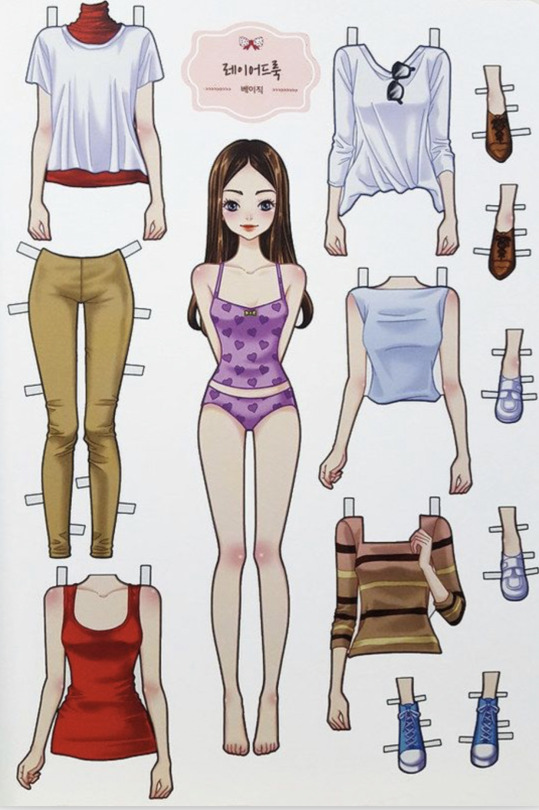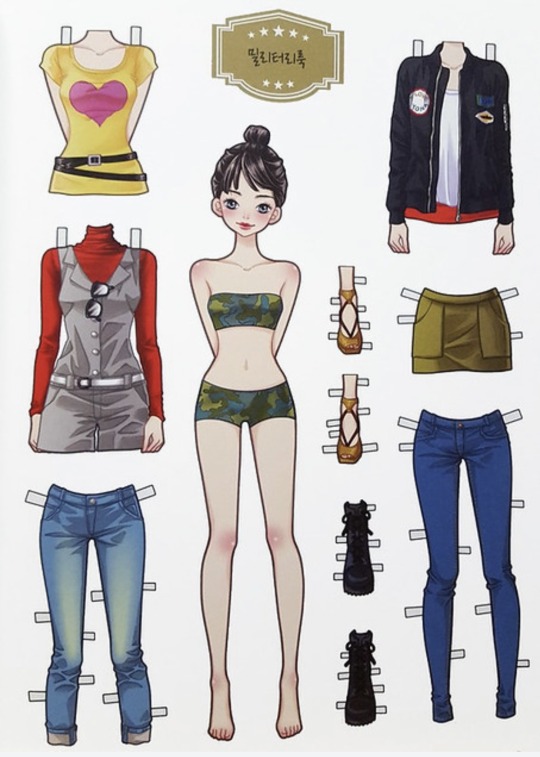#Korean paper
Text

moonassi (Daehyun Kim) (South Korean b. 1980) You see what you want to see, 2018. Korean ink on Korean paper, 48 x 72 cm.
#art#artwork#modern art#contemporary art#modern artwork#contemporary artwork#21st century modern art#21st century contemporary art#South Korean art#modern South Korean art#contemporary South Korean art#South Korean artist#moonassi#Daehyun Kim#Korean ink#Korean paper
8 notes
·
View notes
Text
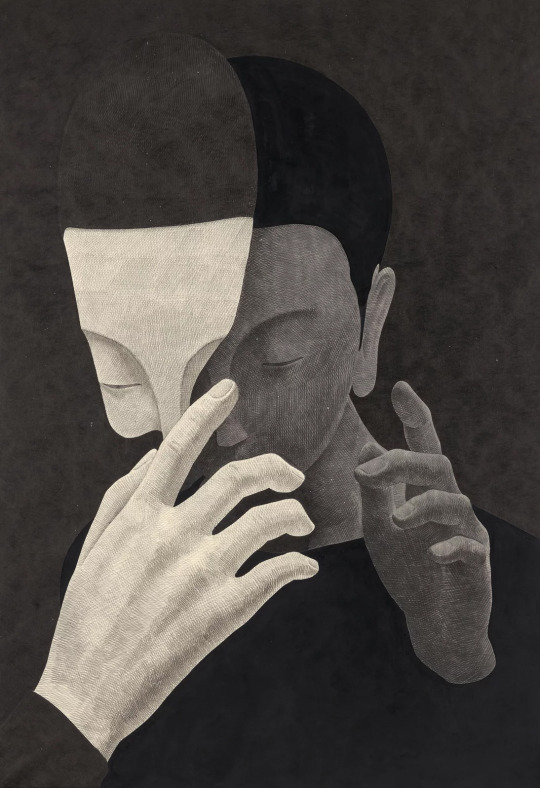
Moonassi
너는 있고 없고 / Quantum of you, 2021
Ink and acrylic on paper.
#moonassi#art#surrealist art#surrealism#korean artist#contemporary art#figurative art#figurative painting#ink on paper#acrylic on paper#acrylic painting
648 notes
·
View notes
Text

Kim Daehyun (a.k.a Moonassi), "Mind Collector", 2023
#Kim Daehyun#Moonassi#art#painting#illustration#contemporary art#korean artist#korean art#asian art#work on paper#acrylic#acrylic painting#ink#21th century art#21th century
350 notes
·
View notes
Text

Cheesy Kimchi Crispy Rice Paper Dumplings
#veganbunnychef#sides#food#recipe#recipes#savoury#cheese#cheesy#kimchi#dumplings#rice paper#rice paper dumplings#mozzarella#cheddar#gochujang#korean#tasty#delicious#foodporn#food porn#foodphotography#food photography
206 notes
·
View notes
Text



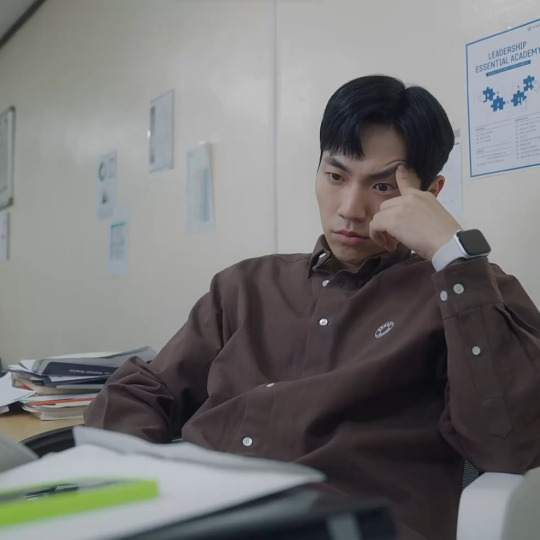
The most relatable character in the series: our chronically tired TA who never bats an eye, battles the world with polite sass and has reached the point of stress that it just slides off like water off a duck's back
#you want me to pose naked for the art students?#sure I've just got to finish these 200 copies#don't worry about the teetering stacks of papers#neither of us are going anywhere#korean bl#love class the series#love class#love class 2#relatable
97 notes
·
View notes
Text
Queer and Crip Temporality in the Eighth Sense and Giovanni's Room
I've been thinking the last week about how The Eighth Sense represents mental health and queerness through a fractured sense of time. It got me thinking about the concepts of queer and crip time which I think the show is depicting. I've also been thinking about how the parallels between how the The Eighth Sense captures experiences of fracture and abjection in a similar way to the novel Giovanni's Room.
For reference:
Part 1: Queer and Crip Time explained
Part 2: Giovanni's Room
Part 3: The Eighth Sense
Queer time and Crip Time
Queer time is a concept that touches on the way that queer lives don't progress in the normative way that non-queer lives tend to. It's a temporal displacement from the norm that queers expectations of heteronormative progress. As a small example, think of the way that many queer folks don't experience many traditional coming of age milestones in the same form or pace as is often expected; things such as dating or going through one's desired puberty may often come much later in life.
Notions of crip time build on the notion of queer time while thinking about disability. This captures in part the way that many disabled lives run on a different time scale, much like with queerness. From the way that a flare or doctor's visits can run a person ragged, taking up their time. To the way that lying in bed, isolated from society, time expands in ways ablebodied folks rarely experience. Crip time, like forms of queer time, however, also refers to a resistant mode of thinking about disabled futures. It interrogates the ableist impulse to envision the future without disability, while opening up for thinking about what a crip future might look like.
In an important way queer and crip time, and representations of them, are both about capturing a lived experience and about imagining otherwise.
2. Queer Time and Abjection in Giovanni's Room
I want to start first by thinking about Giovanni's Room because I think both this novel and The Eighth Sense use queer time in similar ways, but are striving towards different conclusions. So I think it's useful to use Giovanni's Room as a base.
The novel by James Baldwin follows David, an American man who moves to Paris where he begins to navigate his bisexuality and internalized homophobia when he begins a relationship with an Italian bartender Giovanni. The story is told primarily as a flashback, moving between a telling of David and Giovanni's relationship and fallout and the present moment (what David calls "the night which is leading to the most terrible morning of my life") where David is passing the evening before Giovanni's execution.
While the novel structurally plays with time to tell it's story, it also embeds time into the narrative in more symbolic ways as well. Throughout the novel, Giovanni is associated with atemporality, constantly out of step with the flow of Paris life due to his poverty and queerness which require him to work the night shift at a bar. Giovanni is placed both in opposition to normative time but also dependent on it for his financial survival. He gets off work just before dawn as the rest of the city begins it's day. As a shift laborer (he works as a bartender at a gay bar) he must work within a specific schedule for survival, and his poverty and queerness force him out of step with the rhythms of normative society. In this way, atemporality is a form of abjection or social death.
At the same time, Giovanni also turns to atemporality as a form of queer refuge when he is not working particularly within the space of his room where David spends time with him. David recalls that "life in that room seemed to be occuring beneath the sea. Time flowed past indifferently above us; hours and days had no meaning." Giovanni's room becomes a space where time has no meaning, making it free from social constructs of time. All of this, importantly, is carried by the metaphor of the sea, which on the surface marks time by the movement of the tides and the moon, but deep below the surface these tides become imperceptible. And after Giovanni loses his job, David notes how he feels as if he is sinking deeper.
Unfortunately, in Giovanni's Room Baldwin depicts this queer refuge as unsustainable. Temporal norms demand that the body must labor and do so on a specific schedule or social death turns into literal death. After losing his job when his boss tries to exploit him sexually Giovanni sinks further into poverty before killing his former boss and facing execution. At the same time, conformity is also framed as death. David ultimately struggles with his attraction to men. At one point he sleeps with a woman to test his manhood noting afterwards that at this point "I simply wondered about the dead because their days had ended and I did not know how I would get through mine." Baldwin sets up a tension, where the characters can neither escape the norm nor conform since both bring death.
3. Queer and Crip Time in The Eighth Sense
Like Giovanni's Room, The Eighth Sense relies on a fractured and displacement of time to convey the abject nature of queer experience, particularly through the editing style and the way this conveys JaeWon's experience. Of course, I would argue that The Eighth Sense leans towards a more optimistic resolution (at least so far) while interweaving an exploration of trauma, mental illness, and disability with queerness (in comparison to Giovanni's Room which primarily interweaves social class).
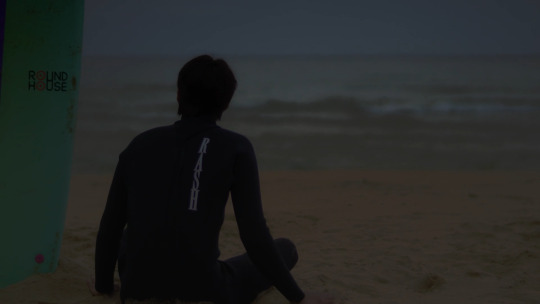
Throughout the show JaeWon faces the strain of normative time and a lingering feeling of too-lateness. He is on the cusp of graduation, like many of the seniors he is expected to take the next step soon of finding a job and entering the rhythms of the workforce. We can feel the strain of this in many ways. For example, the fact that he would like to try out a different career path (photography) but tells his therapist that he feels it is too late.
This too-lateness, of course, also ties into both his queerness and his experience with trauma. Experiencing his brother's death and feeling that he was to blame, that he was in every way too late to save a life that meant so much to him. This affects his relationship with JiHyun after the accident. Once again he failed someone close to him. And in his eyes we can see how he has given up, that in his mind it is all too late. Too late to choose the happiness JiHyun brings him, too late to remove the mask he wears around others, too late to trace a future that doesn't just repeat the past.
The stylistic way in which the show edits and chops up time shows this fracturing well, capturing the way trauma can crip time and the way non-normativity can lead to an internal sense of abjection. Much like Giovanni's Room we see the pressure of normativity and the way this fractures JeaWon, and of course the show subtly gestures to one potential end point when his therapist asks if he has been considering extreme options.
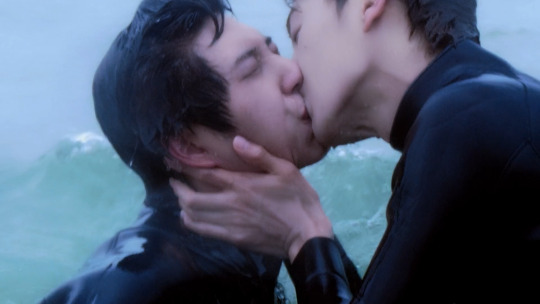
In another similarity to Giovanni's Room, the strain of normative time is contrasted with spaces that offer queer escape, where time expands and normative progression is cast aside. The ocean for him is in some ways that space. We see this most in how JiHyun becomes a safe space for JaeWon. He tells his therapist that he is "happy with him" to which she responds "I can tell that he offers you a place to rest." As @respectthepetty and others have noted, this is shown visually as JiHYun brings light to JaeWon's world.
It is also captured on their beach trip in episode 6. The dreamlike quality and temporal jumping can be read as a way of conveying the refuge of queer and crip space that throws of the shackles of normativity through a sense of atemporality. I think we might also consider the therapists office as a quasi space of crip refuge. While these scenes are still darkly lit and not so dreamlike, they similarly serve as a space where JaeWon's trauma is not fully hidden behind a mask or himself in shadow.
It is largely the ocean which centrally stands in symbolically as this space of refuge for JaeWon and of course as JiHyun comes further into his life, the two merge as JaeWon brings him to the ocean for their trip. Yet, as episode 6 closes, we see this space of refuge, much like in Giovanni's Room prove unsustainable, marked by the threat of death and loss when JiHyun is hurt and this refuge slips away in JaeWon's eyes. He is sinking deeper.

Once again we are faced with both paths leading to abjection and death. However, while the last few episodes have not aired yet, I do believe that The Eighth Sense pushes for a different conclusion than Giovanni's Room and we see this in JiHyun. Like David in Giovanni's Room he comes to find himself in the big city, but instead of internalizing homophobia, he challenges himself to be brave. He is building a network of caring people, many of whom are themselves outcasts in some way, finding new ways to think about queer futures. Even his choice to work sidesteps the grueling constraints of capitalist labor by finding a place where he is valued by his boss (note how often she assures him he doesn't have to work, it's a choice). Again, the final episodes aren't out yet, but I believe the show is building to an alternate conclusion, one where JiHyun and JaeWon can both find it in themselves to choose a future, a future that is crip and queer and not too late, but rather infinite.
#the eighth sense#meta#my posts#my analysis on giovanni is from a term paper from years ago so citing myself i guess#i love the layers in this show#I also feel like the line#to cause you trauma#takes on more nuance in this context#but that's probably for another post#i might update this after the final episodes drop#giovanni's room#the eighth sense the series#bl series#korean bl#the eighth sense meta#my meta
99 notes
·
View notes
Text
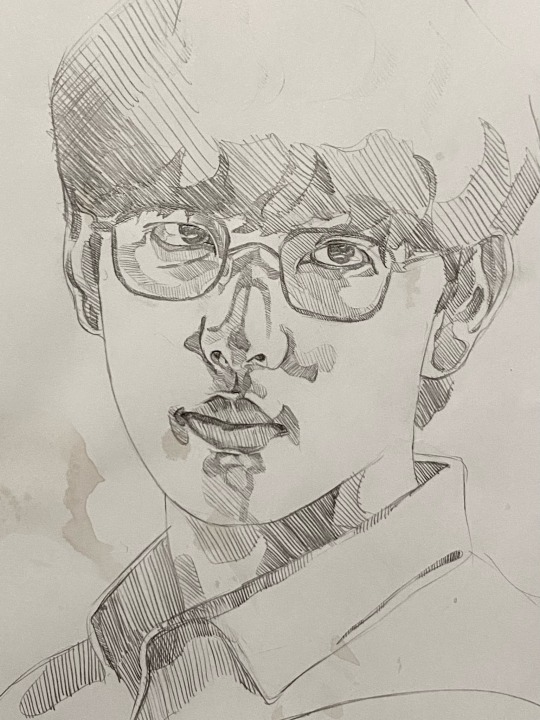
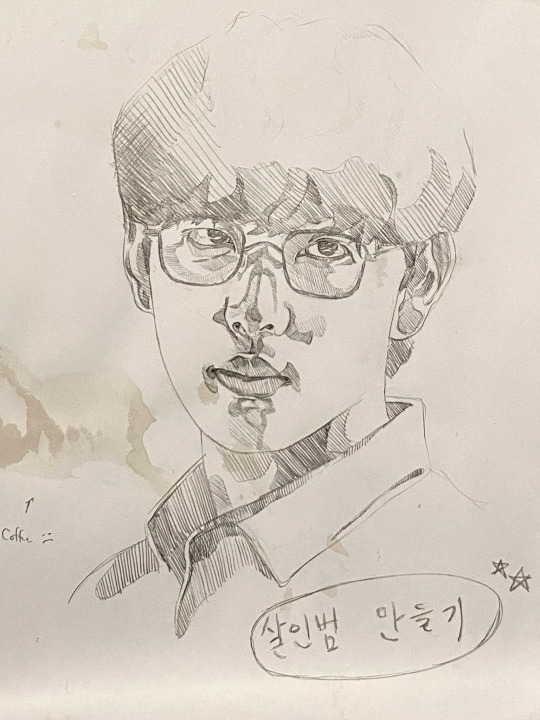
Yim Siwan as Oh Junyeong in UNLOCKED
draft: here!
view images separately for better quality
#yim siwan#im siwan#unlocked#unlocked kmovie#unlocked korean movie#unlocked netflix#korean movie#kmovie#korean thriller#korean actor#kactor#strangers from hell#drawing#fanart#pencil#pencil on paper#pencil drawing
29 notes
·
View notes
Text
Tiger family (1880s) Korean art
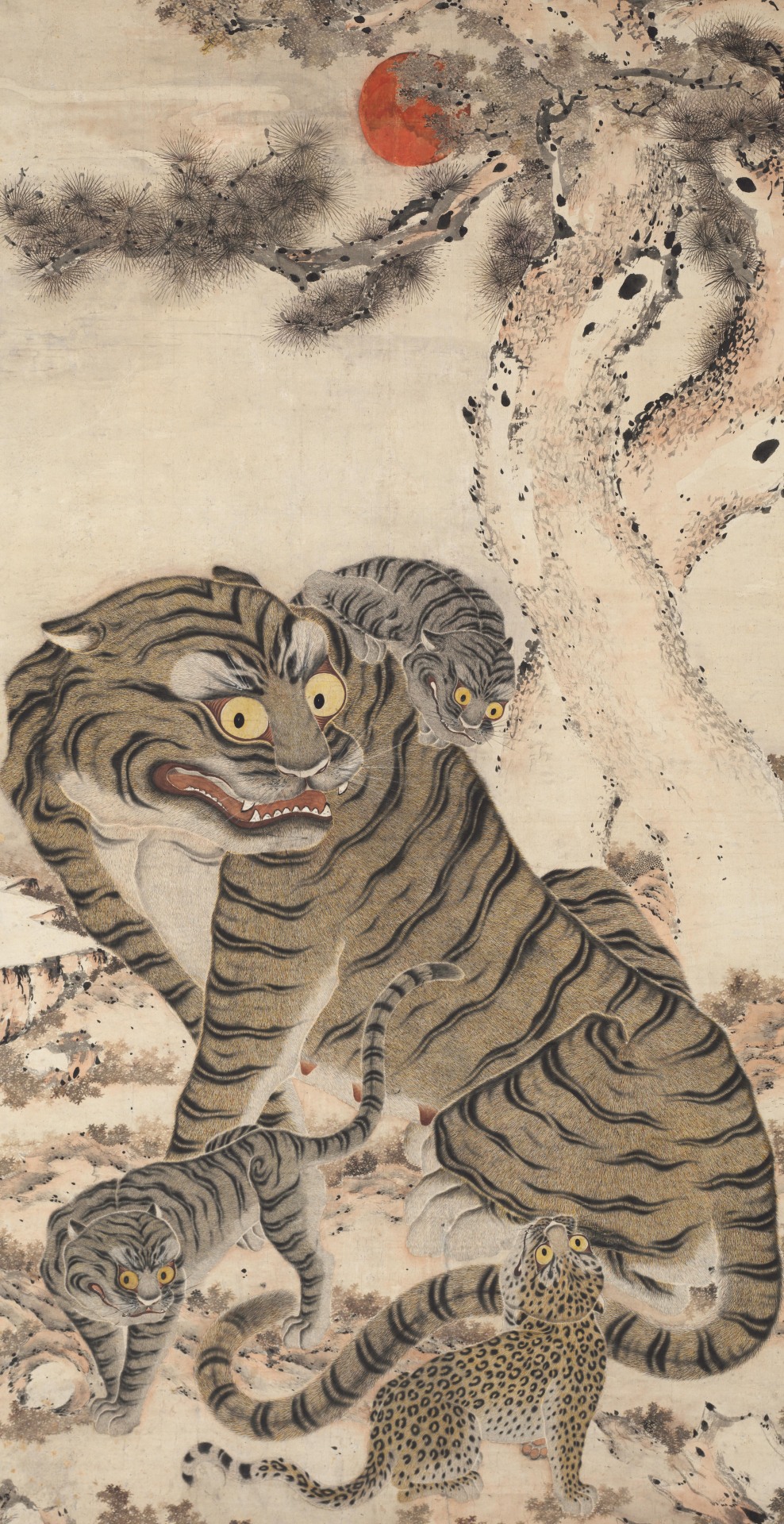
Tiger Family. Korea, Joseon dynasty, late 1880s. (Detail)
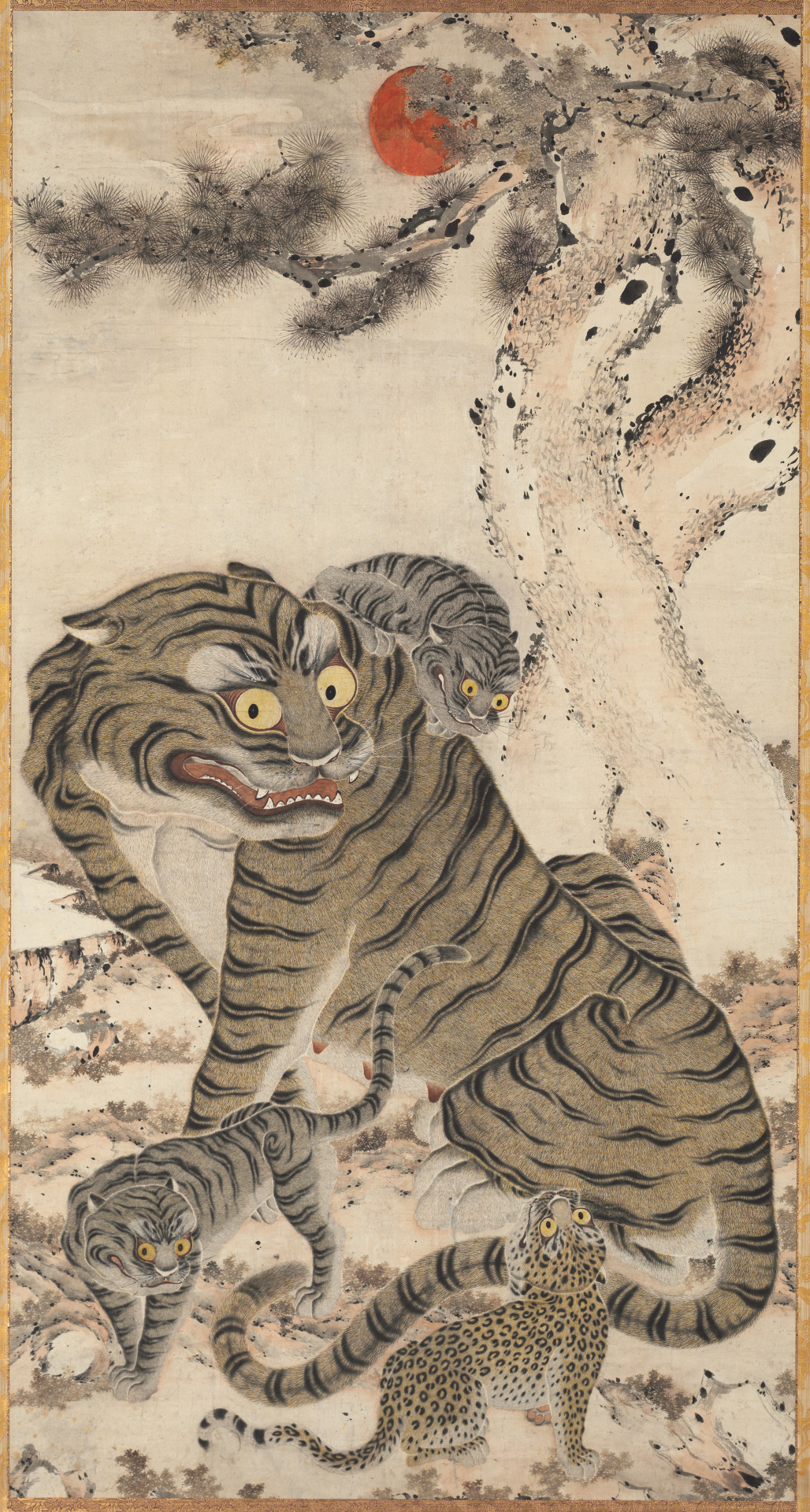
Tiger Family. Korea, Joseon dynasty, late 1880s. Hanging scroll; ink and color on paper. | src Cleveland Museum of Art
view more on WordPress
#asian art#big cats#tigers#korean art#fauna#illustration#dessin#drawing#Zeichnung#Entwurf#disegno#1880s#illustrazione#ink on paper#joseon dinasty#paper scroll#wilde life#tiger#tiger family#far east art#unknown artist#wild animals
144 notes
·
View notes
Text
Printer at my work place:

All I’m thinking about:
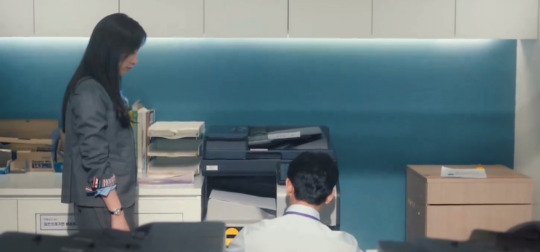
#drama withdrawal#where is my hyun woo#paper did not jam#I actually know to use a printer#queen of tears#kim soo hyun#kim jiwon#hong hae in#baek hyun woo#korean drama
16 notes
·
View notes
Text
You know what? I give up on this paper once and for all. I'm not even ashamed anymore
#okay I'm a little ashamed#it's another 5 points i have to catch up with next semester#but it's making me want to kill myself and i don't even know if the professor would still accept it#(the original deadline was in October. i got an official extension until November. i guess it'd be just rude#to ask if it was still okay to send it#especially since i haven't done any substantial work on it#it's just bad. i hate the topic. i hate the way the professor views the subject 'language and emotion'#so that i cannot write what i want but would have to tailor it towards her views because otherwise I'd fail#and also i cannot write in german. i simply can not do it. )#it's better to move on and focus on my last paper for last semester (official deadline is end of March#so I'm not behind for once)#and i should do the assignments for a module i should have finished 1 year ago#so i don't have to do that next semester#and i should start studying korean again so i don't make a complete fool of myself next semester#I have my first day of work in 2 weeks so I'll also have to focus on working (for money) from there on#I've been paralyzed by the thought of having to write this paper for way too long#the professor is not my boss anymore (i still have to work off some hours though) and even if she was#I'm so done being ashamed of myself for not being able to do certain things#i wanna give it my best from now on but not for this paper. it's done.#void screams
10 notes
·
View notes
Text
@sizzlingsandwichperfection-blog
I was watching this South Korean series called Marry My Husband (aired 2024) and lo and behold, what does my eye catch?
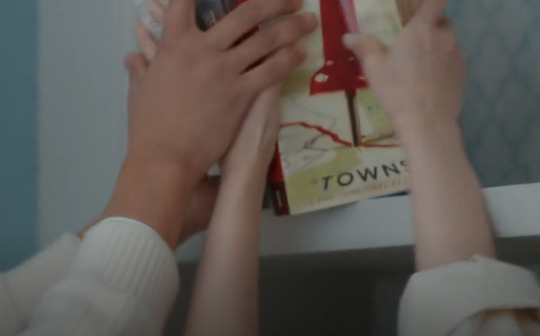
I didn't know your book was popular all the way to South Korea!
It might also be some symbol (Easter egg style) of her journey to some destination... that is not exactly on the map of her life.
OR we have South Korean nerdfighters :)
#John Green#Paper Towns#Marry My Husband#Korean drama#k-drama#the title of the series seems strange#but it's about a woman who has a chance to change her life#she had a bad husband but now she tries to get another woman to marry him instead#clover talks
7 notes
·
View notes
Photo
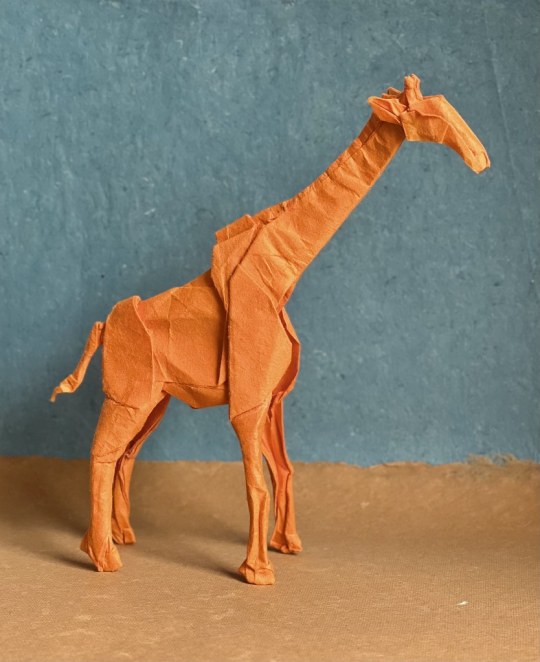
Giraffe by Philogami https://flic.kr/p/2ovXkBN
35 notes
·
View notes
Text
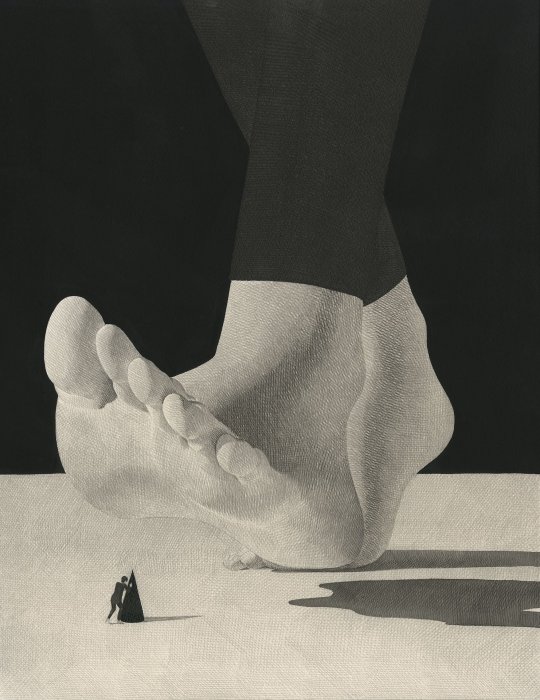
Kim Daehyun (a.k.a Moonassi), "Feeling of Now", 2021
#Kim Daehyun#Moonassi#art#korean art#painting#contemporary art#illustration#illustrations#acrylic#acrylic painting#ink#work on paper#21th century art#21th century#paintings#asian art#black and white#b&w#aesthetic#feeling
64 notes
·
View notes
Text

Rice Paper Tteokbokki (Korean Sweet And Spicy Rice Cakes)
#veganbunnychef#red#korean#sides#lunch#dinner#rice paper#tteokbokki#rice cakes#korean food#korean recipes#food#recipe#recipes#vegan#veganism#vegetarian#plantbased#plant based#gochujang#gochugaru#glutenfree#gluten free#tasty#delicious#yummy
51 notes
·
View notes
Text
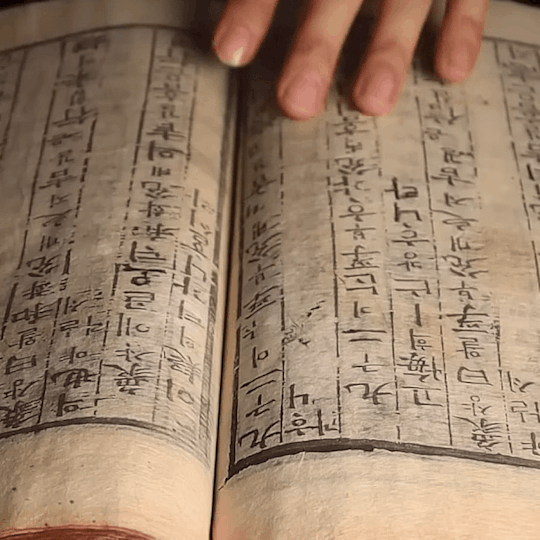


( x )
#stim#visual stim#stim gifset#mine#beige#writing#calligraphy#korean writing#old#retro#vintage#aesthetic#slow#paper#dark academia
29 notes
·
View notes
